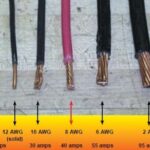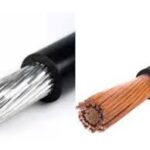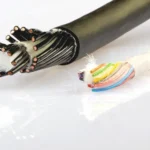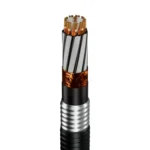Hook up wire is one of the most common types of electrical wire used in electronic devices, appliances, control panels, and industrial equipment. It’s designed for low-voltage, low-current applications, where flexible, insulated conductors are needed to connect internal components.
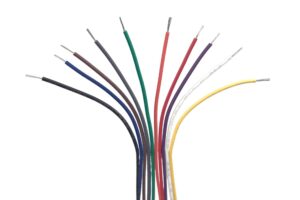
hook up wire
Whether you are building a DIY project, repairing a device, or sourcing for industrial use, understanding hook up wire specifications is essential.
What Is Hook Up Wire?
Hook up wire is a single insulated conductor used for internal wiring of electrical and electronic equipment. It usually consists of:
Conductor: Solid or stranded copper (tinned or bare).
Insulation: PVC, XLPE, PTFE, or other materials depending on heat and voltage requirements.
Voltage Rating: Commonly 300V or 600V.
Temperature Rating: Ranges from -65°C to +200°C, depending on insulation type.
Common Types of Hook Up Wire
PVC-Insulated Hook Up Wire
Temperature: -20°C to +105°C
Cost-effective, easy to strip, and widely used in appliances and control panels.
Teflon (PTFE) Hook Up Wire
Temperature: -65°C to +200°C
Resistant to heat, chemicals, and moisture.
Common in aerospace, military, and medical equipment.
XLPE-Insulated Hook Up Wire
Higher temperature resistance than PVC.
Good dielectric strength and mechanical durability.
Silicone Hook Up Wire
Extremely flexible.
Withstands high heat.
Used in robotics, automotive, and high-movement applications.
Solid vs. Stranded Hook Up Wire
Solid Wire:
Single copper conductor.
Rigid, holds shape.
Best for fixed connections (e.g., circuit boards, terminals).
Stranded Wire:
Multiple thin copper strands twisted together.
More flexible and durable against bending.
Ideal for applications where the wire may move or vibrate.
Applications of Hook Up Wire
Internal wiring of appliances (refrigerators, microwaves, washing machines).
Electronics and PCB connections.
Control panels and switchboards.
Automotive wiring for low-voltage circuits.
Industrial machines where flexible, insulated wires are required.
How to Choose the Right Hook Up Wire
Conductor Size (AWG / mm²):
Determines current-carrying capacity.
Common sizes: 12 AWG – 30 AWG.
Insulation Material:
PVC for general use.
PTFE or silicone for high-temperature or harsh environments.
Voltage Rating:
300V for electronics and light appliances.
600V for industrial and heavy-duty equipment.
Environmental Resistance:
Consider heat, moisture, chemicals, and mechanical stress.
Where to Buy Hook Up Wire
Hook up wire is widely available from:
Electrical supply stores
Online retailers (Amazon, Digi-Key, Mouser, Allied Electronics)
Industrial distributors for bulk orders
When sourcing for projects or production, always verify compliance with UL standards or other local electrical certifications.
Conclusion
Hook up wire is a versatile, insulated copper conductor essential for appliance wiring, electronics, automotive, and industrial applications. Choosing the right type—solid or stranded, PVC or PTFE—ensures safety, reliability, and performance.
Whether you’re a DIY hobbyist or an electrical engineer, selecting proper hook up wire will keep your project running smoothly.

